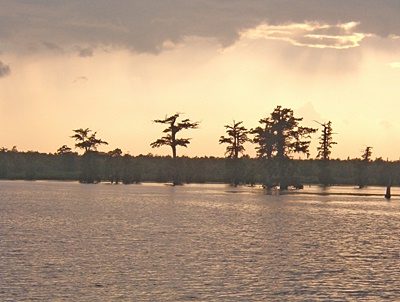All Nonfiction
- Bullying
- Books
- Academic
- Author Interviews
- Celebrity interviews
- College Articles
- College Essays
- Educator of the Year
- Heroes
- Interviews
- Memoir
- Personal Experience
- Sports
- Travel & Culture
All Opinions
- Bullying
- Current Events / Politics
- Discrimination
- Drugs / Alcohol / Smoking
- Entertainment / Celebrities
- Environment
- Love / Relationships
- Movies / Music / TV
- Pop Culture / Trends
- School / College
- Social Issues / Civics
- Spirituality / Religion
- Sports / Hobbies
All Hot Topics
- Bullying
- Community Service
- Environment
- Health
- Letters to the Editor
- Pride & Prejudice
- What Matters
- Back
Summer Guide
- Program Links
- Program Reviews
- Back
College Guide
- College Links
- College Reviews
- College Essays
- College Articles
- Back
The Florida Panther
It is estimated that only eighty of these animals live in the wild today. Thirty to thirty-five of the panthers have radio collars that allow scientists to track and study these animals. The panthers’ habitat used to include Georgia, South Carolina, Mississippi, Louisiana, Arkansas, Alabama, Tennessee, and maybe even into Texas. Now they are only found in the southern areas of Florida like the Everglades and the Big Cypress Swamp. They are threatened by habitat destruction, genetic defects caused by inbreeding, and automobile collisions. As anyone can see, these animals are on the road to extinction all because of us humans, this isn’t just our Earth and we need to share it with the Florida Panther.
As a Florida Resident one might not notice the panthers in the wild due to the minimal habitat they thrive in and the small number of panthers still living. I was fortunate enough to grow up with a house in the city and a small home on a larger piece of land just north of Lake Okeechobee. Seeing a wild panther was one of the things I had always wanted to see. When I finally saw one in the eight years we have owned the land I was very surprised. One panther in eight years, the street our home is on is even named “Panther Pass”. I decided to do some research on the Florida Panther and I stumbled upon the results stated previously. I also found many stories of the Panthers having problems multiplying back to their original population. I managed to discover many ways to help the Panthers as well. Anyone can help by donating money to the Florida Panther National Wildlife Refuge. It was established in 1989 under the Endangered Species act. The refuge consists of 26,400 acres of land in the Everglades-Big Cypress area it strides to provide optimum habitat for the panthers as well as other wildlife. If you can’t donate but are a Florida Resident you can help by simply watching the roads and looking for Panther Crossing signs as well as not littering and supporting less urbanization into the Panthers’ habitat. Many people would love to see the Panthers get back into the wild and regrow back to their full potential, and to one day bring Florida’s natural habitats back to their original states.

Similar Articles
JOIN THE DISCUSSION
This article has 0 comments.
